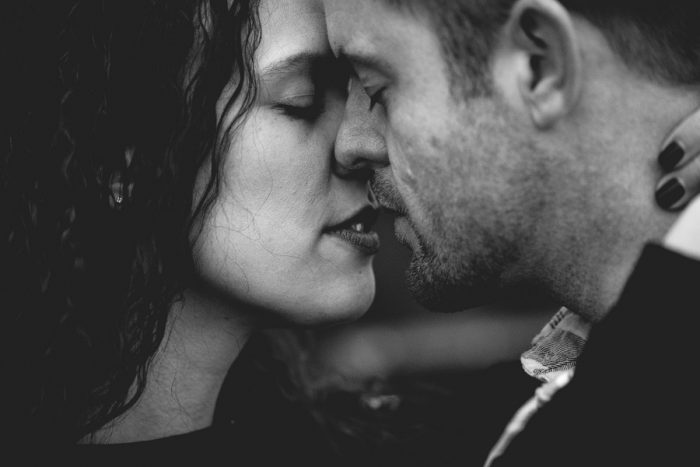We want more.
As women break through the old social norms and expose the dysfunction in our relationships, the pressure on men to evolve is mounting. The old gender-based expectations aren’t working for women, and the truth is they no longer work for men either—and our relationships are suffering.
Two authors—female and male—share their perspectives about what needs to change.
Her perspective:
Men are struggling.
I observe it in every conversation. Coaching men has been the most eye-opening and sobering experience for me.
The degree to which men repress their needs, both physical and emotional, their shame, and sense of guilt are staggering. The fear of their own anger and primal instincts clashes with the conditioned fear of being perceived as weak. The overwhelming responsibility for people in their care and the associated stress and pressure to perform results in illness, depression, addictions, and dysfunction around relating and sexuality.
What is dramatic is that there appears to be no safe space for men to talk about their struggles—not in our homes, nor anywhere in our society.
I understand the current pushback against men, because my own voyage toward self-empowerment turned me first against my husband, then against my father. It took years of inner work to understand that it is not the men in my life who are responsible for my choices and sense of disempowerment. It is the system of patriarchy—the societal and family structures—that perpetuate the unhealthy and outdated ways in which we condition the behavior of women and men. It’s become clear that men, as well as women, are victims of this system.
Women have been creating change toward empowerment for generations now. Systemic change takes a long time. There is massive resistance to tradition and inertia. We are changing the fabric of society, the whole culture of how we live, how we relate to each other and to ourselves, expanding the definition of what is normal and acceptable.
Men now have to start contributing their voices to ours for sustainable change to take place. They have to learn to talk of their experience honestly and vulnerably, in order to be heard and allow the healing process of being witnessed in their truth. This means doing the inner work, facing their shame and fears, and learning to communicate through discomfort.
I’m used to teaching self-responsibility to women. Now I find myself teaching the same to men. The only way to break out of the cycle of codependence, resentment, and mutual mistrust is to start taking personal responsibility for our actions and words, learn to be accountable and trustworthy, and step into our agency to create the change we want to see in the world.
No matter the culture or epoch in which we live, the real man is first of all a human being, with all the messiness and complexity of what that means. As we break out of the rigid inherited definitions of our genders, will men dare to step out and share what it means for them to be a man today?
And women, as we watch our men reveal their humanity, will we be able to accept them in their vulnerability? Because that would require giving up our impossible expectations of being saved and force us to wake up to the fact that men are regular people, just like us.
I think men are ready to dump the emotional weight and painful aloneness of their armor. Are we—women—ready to welcome them as such?
His perspective:
Yes, we are struggling.
The world is evolving, and we are holding tightly to archaic norms that define our masculinity as if our lives depend on it—and it’s crippling us.
As a society, we’re moving beyond our old notions of what it means to be a real man—shutting down our emotions, rejecting vulnerable connections, objectifying women, and resolving conflicts with intimidation and violence.
We’ve gotten away with this because we were the breadwinners, the rescuers, and the head of the house. But things have changed; women are independent and self-sufficient. We don’t live in castles anymore.
More than ever, our relationships are based on choice rather than need. No longer needed the way we were in the past, men are being asked to step up emotionally—and this change has caused a crisis of confidence. We no longer know who the f*ck we are or what our role is supposed to be.
We are not whole. Since childhood, we’ve been systematically trained to shut down the parts of ourselves previously associated with femininity—tenderness, vulnerability, empathy, and compassion. For generations, we’ve rejected our emotional sides in favor of traditional masculine norms—ambition, aggression, toughness, and competitiveness.
We’ve become so skilled at shutting down our emotional sides that we’ve become completely disconnected from the parts of us that are most important for living lives deeply connected with ourselves and others.
The traits needed to live wholehearted lives are not gendered—they are qualities shared by all of us.
We were never taught that we are all made up of masculine and feminine energies. Our masculine might be more dominant, but we have feminine energy inside us too—we are a mosaic of both of them to varying degrees. Individually we have a natural equilibrium between the masculine and feminine energies, and that balance within us defines who we are.
When we repress our feminine energy, we are not whole—we’re thrown out of balance.
Energetically and unconsciously, our bodies struggle to regain our natural equilibrium at the same time we’re fighting to suppress it—this creates the tension and discord that manifests as the mental health issues and unfulfilling relationships that are plaguing us.
We try so f*cking hard to push the feminine energy away—our softer sides—out of fear and shame. We’re so afraid to appear weak, fragile, or female that we’d rather die first—and sadly many of us are doing just that.
It doesn’t have to be this way—the truth is, we can have it all.
The masculine and feminine stereotypes we cling to are old and broken. Reconnecting with all of our parts is not about giving up our masculinity, but adding to it. Being secure in our masculinity means we can be ambitious, tough, and competitive, but also vulnerable, compassionate, and nurturing.
Having the courage to embrace our feelings makes us stronger, not weaker. We’ll be better men—for ourselves and for others. We’ll be better partners and fathers, better friends and lovers.
If we want to truly honor our masculinity, let’s be brave enough to connect deeply with all the parts of ourselves and tough enough to own our emotions—it just might make all the difference in our relationships and our lives.
~
“Blessed are those brave enough to make things awkward, for they wake us up and move us forward.” ~ Glennon Doyle
~
For more from Galina and David:


 Share on bsky
Share on bsky





Read 107 comments and reply